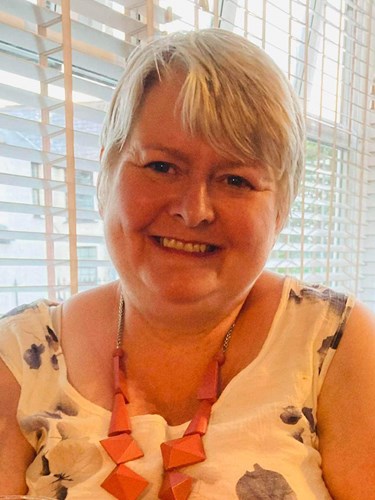
Judith Rowlands had been diagnosed with incurable endometrial cancer when she heard of Tenovus Cancer Care.
She had called our Support Line and was referred to our professional counselling service. Talking to someone outside the family, Judith told us, allowed her to talk openly, and in confidence, without upsetting the people she loved most in the world. Her family were also offered support.
However, Judith also felt a strong sense of injustice. She felt her stage 4 cancer, now too late to cure, had been avoidable and was understandably angry.
Judith had been referred quickly enough by her doctor, her cancer diagnosed at a much earlier stage, but it was in secondary care, and in the aftermath of an operation to remove the cancer, that she told us she felt most failed.
She told of instances where she believed her care had been unacceptable, but her overwhelming feeling was one of being disbelieved and dismissed by medical professionals.
Judith said she’d told them about her agonising pain, and that she believed she still had cancer after her op, but her protests were ignored, and she felt dismissed, treated in her words as some kind of “neurotic woman”. She was later proved right, but it was too late.
It was after seeing our Chief Executive Judi Rhys, MBE, in an interview on gynecological cancers on TV, Judith decided she wanted to share her story, to raise awareness, so other women didn’t have to go through the same thing.
She contacted our communications team, and we listened. Judith had kept a diary of her experiences and wanted to write a blog to share on our social media channels and she set about the task. She said writing about her experience was empowering and cathartic.
We then learned the Welsh Parliament’s Health and Social Care Committee, a cross party group of Members of the Senedd (MS’s) were looking for women with poor experiences of gynecological cancers to give video evidence.
It was nearing the deadline, but we asked Judith if she wanted to share her story with the committee, and she decided it felt right for her, despite her deteriorating health.
Through our Policy and Insight team, we made the Welsh Parliament aware of Judith’s case and her desire for her story to be shared as part of the Inquiry.
A representative of the Welsh Parliament travelled to Judith’s home in Anglesey to record her story with the blessing of her family.
The Health and Social Committee’s inquiry was to be groundbreaking. For the first time in the Committee’s history, video evidence from the people affected, in this case poor experiences of gynecological cancers, would be shown to members. There were human faces in the room, not just cold and clinical statements on a piece of paper.
Another evidence-giver facilitated by Tenovus Cancer Care, Claire O’Shea, sat in the public gallery as her video was shared, and later sat beside us, using her personal experience to inform committee members, as we gave our own evidence and recommendations to the Committee.
It was an emotionally charged session, and there many tears in the room, but bringing the person to the politician made this raw and real, impactful like never before.
However, as Judith’s evidence had been collected late, and a date had not yet been set, if at all, we were still not sure whether her harrowing story would ever be told.
Sadly, Judith then fell gravely ill and was admitted to hospital. Heartbreakingly, consultants told her she had just weeks to live, and that life-extending Immunotherapy treatment hadn’t worked.
It was from her hospital bed; Judith found the strength to contact us one last time, imploring us to make sure her story was shared with the Committee before she passed.
We told the Welsh Parliament of Judith’s condition, and members of their Citizen Engagement Team worked over a weekend, editing Judith’s video, so her evidence would be ready for the next session.
After the evidence was shown, the Committee sent a letter thanking Judith. Her daughter, Sioned, read it to at Judith’s bedside whilst she was heavily sedated. She told us her mum had acknowledged the letter and knew her story had been shared.
Cancer affects families, not just loved ones, and it’s in her children that Judith’s spirit lives on. Sioned, her daughter, a private person, has felt compelled to speak to the media to carry on mum’s legacy following the publication of today’s report.
Whilst sharing stories is not for everybody, a personal choice with no judgement, it felt right for Judith.
Her motivation was to stop her tragic story happening to another, and for there to be change, so women are believed and treated with respect.
Tenovus Cancer Care would like to say thank you to Judith for her contribution to the Inquiry, for sharing her story, and bravely making a difference. Her evidence has helped Committee members arrive at 26 greatly needed recommendations for change that now need to be acted on.
We wish Judith’s family and friends all the healing in the world as they still come to terms with the huge loss of their beloved wife, mum, and friend.
Thank you, Judith, your strength, and determination to be a change-maker through adversity has made all the difference.
Tenovus Cancer Care will continue to fight for all people affected by cancer, ensuring they have a voice, and the support they need.


